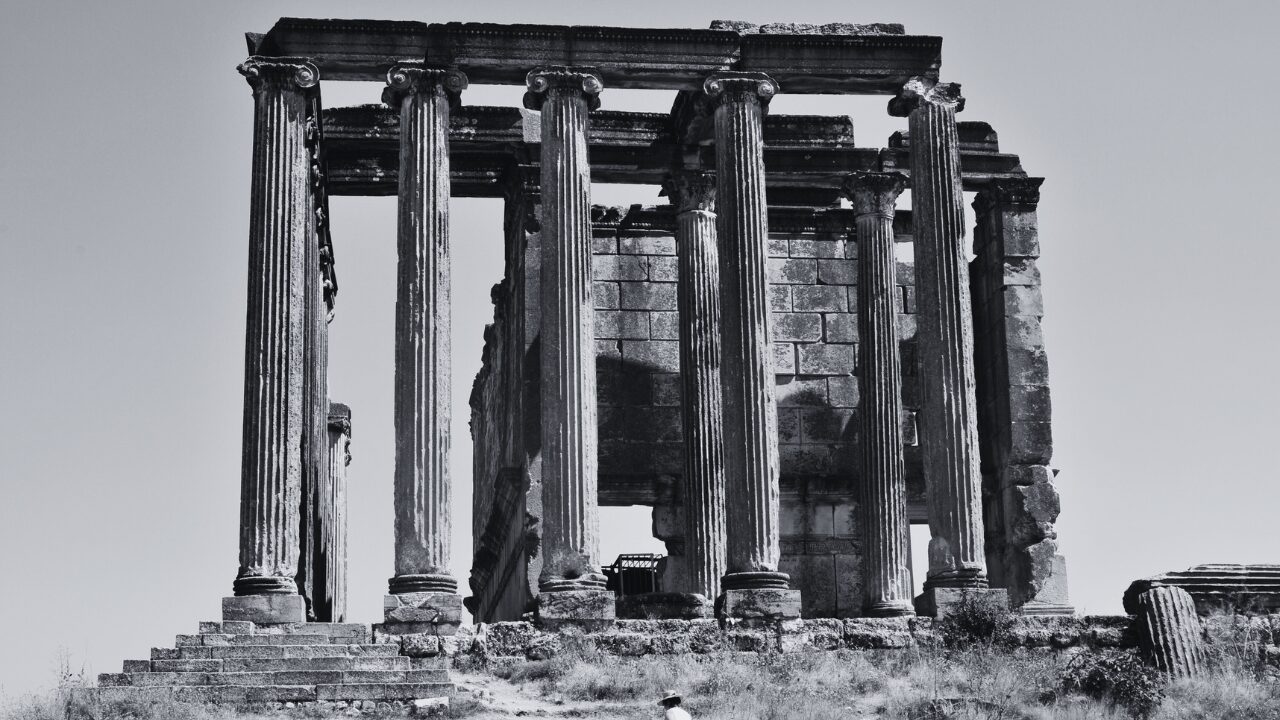You might be wondering why Greece is officially called the “Hellenic Republic” or “Hellas” and why Greeks are often called “Hellenes”. The same goes with adjectives such as “Hellenic” and “Hellenistic” instead of Greek. Another common term is “Philhellenism”, meaning friend/lover of Hellenism. What do these terms mean and how are they connected to Greece?
Hellas and Hellenes
The reality is that Greeks/Hellenes today use the terms «Ελλάδα» (Hellada), «Έλληνες» (Hellenes), and «ελληνικός» (Hellenic) when talking about Greece, Greeks, and Greek (adjective) respectively. At the same time, many Western countries are more familiar with the Latin “Graecia”, hence the common use of the words “Greece” and “Greek”. In this sense, “Greece” and “Hellas” can be used interchangeably, but the second option is more accurate than the first.
Greek Lessons for Absolute Beginners | Learn Greek Online
Learn Greek with Helinika’s Udemy course for absolute beginners. Fast, affordable, and flexible. Greek lessons for absolute beginners.
Origins of the Terms Hellas and Hellenes
There are various theories surrounding the etymology of “Hellas”. We know from the ancient Greek poet Homer that Hellas was a place in central Greece, where women were described as “very beautiful” (καλλιγύναικος). You might have also heard of the mythical Helen of Troy, considered the “most beautiful woman in the world”, whose abduction started the Trojan War. Her name, which is still a very popular given name for girls, means “bright”/ “of light”, leading us to the conclusion that Hellas was “the land of light”. Greece is still referred to as “the land of light”, not only because of its clear skies and many consecutive days of sunlight but also because its history inspired the Age of Enlightenment.
The term started describing all Greeks thanks to the conquests of Alexander the Great (356 BC – 323 BC). Up to that point, the Greeks were organized in city-states, such as Athens and Sparta. Greeks were aware of their common characteristics in religion, language, and appearance, and would distinguish themselves from people of different cultural backgrounds.
With the creation of the vast empire of Alexander, these differences became more prominent and Greeks started recognizing themselves as one group: the Hellenes. Ancient Greek historian Thucydides was also using the term “to Hellenize” (ελληνίζει) when referring to the spread of the Greek language and culture.
Hellenistic Period
The Hellenistic Period is the historical period that starts with the death of Alexander the Great in 323 BC and ends with the Battle of Actium in 31 BC and the emergence of the Roman Empire. This was the time when the Attic dialect of the Greek language, which you may know as Koine Greek, became the lingua franca in the Mediterranean and other regions that were reached and influenced by Alexander. Some scholars often refer to it as an age of decadence, since it marks the decline of the Greek Classical Era. However, the Hellenistic Period was a time of prosperity and was characterized by great progress in arts, mathematics, philosophy, architecture, and science. Stoicism and Epicureanism saw a rise during this period.
Hellenism
“Hellenism” has three different meanings. Today, the term describes the culture(s) of Hellas and Hellenes (Greece and Greeks) from ancient to modern times. Sometimes, scholars might use the term Hellenism to describe only the culture of the Hellenistic Period, as described in the previous paragraph. In the European Romantic era, “Hellenism” was a synonym of the neoclassical movement in art and architecture, which was inspired by the Greek Classical era.
Philhellenism and Philhellenes
Philhellenism derives from the Greek «φιλώ» (to befriend, to love, to adore, to kiss) and the term Hellenism, which is a synonym for the Greek culture and aesthetic. Philhellenes are the admirers of Hellenism and Hellenes (Greek culture and Greeks). Philhellenism became a movement in Western Europe and other regions in the 17th, 18th, and 19th Century thanks to the neoclassical movement that focused on the study of Classical philosophers and thanks to the tradition of the Grand Tour; a coming-of-agee trip for upper-class European men in the archaeological sites of Italy and Greece. Philhellenism played a crucial role in the start and completion of the Greek War of Independence against the Ottoman Empire.

